Ed. Note: We’re pleased to feature part of this article on the expansion of female spaces in Bangkok from online magazine The F Word, which included it in its second issue published last week.
Women-only spaces are nothing new. From convents to bathrooms, women’s shelters to girls’ schools, Girls Guides to the Women’s Institute, women-only train carriages to ladies zones in gyms. Women-only spaces fulfil a collective need for safety, ease, understanding, communication, support and community.
And now, women-only spaces are on the rise in Bangkok. It started steadily, with significant women-only and women-focused spaces emerging in the past decade, such as the Wonder Women Meetup group for women-only social events, Bangkok Rising – a volunteer-based community organization centered around gender issues, and Dragonfly360, a regional platform promoting gender equality in Asia which organized the first gender equality summit on the continent.
Then, despite a pandemic (or, perhaps, because of it), women-only spaces doubled down. The year 2020 saw the opening of Maison Rouge, a female-focused multipurpose event space; all-female comedy line-ups such as Lady Laughs at The Hive Thong Lor and Tits and Giggles at Maison Rouge; plus the first Female Founders Farmers Market, run by Ila, a female-founded social enterprise that trains organizations in inclusivity.
The increase shows no signs of slowing. This year alone has seen the formation of the Bangkok Boss Babes Facebook group for business networking and social media engagement; Female Film Co. photography meetups; Womxn Living in Thailand Clubhouse group for live podcast-style workshops; FemVestors financial advice platform for women; and – shameless plug – The F Word.
Why are women-only and women-focused spaces popping up all over the place? In the fight for equality, why are women choosing to create their own spaces, rather than advocate for gender balance in existing ones? And most intriguingly, why now?
The F Word spoke to Bangkok’s best known women-only and women-focused spaces, both new and well-established, to better understand the answers to these questions.
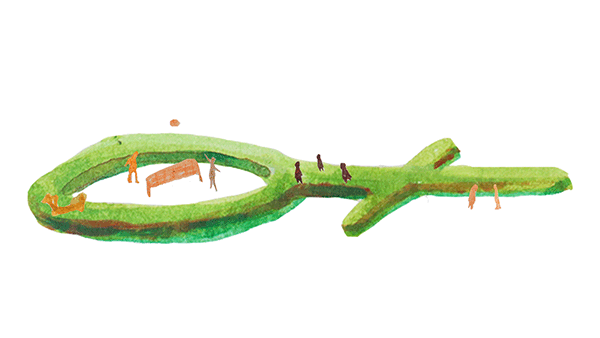 Illustration: Blue Ratchapradit
Illustration: Blue Ratchapradit
Warning: The following article includes mentions of rape, sexual assault, domestic abuse and suicide.
Safety
The first and most obvious benefit of a women-only space is safety. The year is 2021 and unfortunately, women still have to stick together out of fear of being attacked.
A recent example of this was the alleged rape of a 16-year-old Thai girl who said her Bolt driver drugged and then assaulted her at a motel. According to the young girl, the police took no action, despite confirmations from a hospital that she had been drugged and sexually assaulted, and the fact that the teen had identified her attacker by finding him online.
Both Bolt and Grab, Bolt’s biggest competitor, have since rolled out women-only rides with female drivers. We hope that these companies are also focused on other solutions such as background checks on drivers and measurements put in place to protect female drivers (or, y’know, Thailand could work on improved sex education, particularly when it comes to consent), but women-only taxi rides are at least something.
View this post on Instagram
Violence against women in Thailand is a severe and enduring issue that has prompted the founding of a number of women-focused spaces and organizations, including Bangkok Rising, a volunteer group that campaigns for the elimination of gender-based violence through events; as well as Dare to Tell, where people can share stories of sexual assault and harassment, and Break the Silence TH, a support group for victims of gender-based violence.
These safe, supportive women-only spaces for survivors and victims are more important than ever. Due to the pandemic forcing people into isolation at home, domestic abuse and gender-based violence in Thailand has skyrocketed.
One organization aiming to provide a lifeline to women in abusive situations is Ila, a UK enterprise cofounded by Net Supatravanij. Returning to Thailand in light of COVID-19, Net decided to set up an Asian base for Ila and develop an app called Ally, which trains people to spot signs of abuse and direct victims toward help.
>“During COVID, there has been such a rise in domestic abuse cases – we wanted to build a tech solution that enables bystanders to become allies,” Net said. “One of the amazing stats that really drives Ally is the fact that 87% of bystanders are more likely to help if they’re trained.”
The Ally app has been partly funded by two Female Founders Farmers Market events, organized in collaboration with Bangkok Rising. The first was held in December and the second in April. All vendor fees go toward development of the application.
“Everyone really enjoys the atmosphere, there’s female empowerment in the air.”
“We realized we needed to be a bit different, stand out, have something unique about Ila,” Net said. “It came to us so clearly that it [the fundraising event] needed to be a space for female founders and female entrepreneurs. There’s never been a space that celebrates female founders anywhere in Thailand, especially in a market format. There’s nothing in Bangkok for female entrepreneurship.”
The first Female Founders Farmers Market, held in December, saw 500-plus attendees. The second, held at the start of April, was just as successful. So much so that Ila hopes to hold several events throughout the year.
Beyond the fundraising impact of these events and the unique selling point of a women-only space, Net noted that the ambiance of the Female Founders Farmers Markets is special, and that both attendees and vendors picked up on this:
“One thing that’s clear from the feedback is that everyone really enjoys the atmosphere, there’s female empowerment in the air. Everyone is just so nice and welcoming, and championing each other and their businesses. And, I don’t know, I’m going to go off on a hunch and say you’re not going to find that in a mixed-gender environment or an all-male environment.”
Support
For women who are recovering from gender-based violence, support is integral. One group providing this support is Break the Silence TH, a private Facebook group set up by Jomtien “Jom” Jansomrag and Tanawat “Tata” Suwankanit.
Established in December 2019, the group is not only open to women, though most members are female, as Jomtien noted that it’s harder for cis men and non-binary people to speak out on this difficult subject. She estimates around 90% of the group’s members are survivors of sexual harassment and around 10% are survivors of domestic abuse.
“Some of the men in our group are actually boyfriends of survivors, as the survivors themselves don’t want to speak out or want anyone to know what happened to them.”
In the group, trauma survivors can share how they’re feeling and their experiences. Older members can give advice to newer members, and there’s also a volunteer counsellor who helps take care of the mental health side, as some of the survivors are at risk of suicide. It’s also a place where members can share information, especially news about policy changes and activism related to sexual abuse and gender-based violence.
“I thought, why don’t we all come together and talk about it? That’s why I started the group. I want them to know what I know.”
Outside of the group, Jomtien arranges meetings in person (until the pandemic prevented such gatherings). Events included a discussion on Thai law, an art therapy session, a Muay Thai session with a female boxer, and a workshop on how to communicate trauma.
Members provide each other with support if survivors wish to go through the justice system, and Jomtien is a case worker who accompanies survivors to places such as a police station or hospital, should they wish or need to.
“Recently, a survivor was in court for her rape case,” Jomtien said. “Her family wasn’t supportive, so myself and four other members of the group, whose mental health were in a stable enough condition, went along to support her.”
Jomtien, a survivor herself, recalls how when she went to her school and family for help, no one supported her. Once she grew up, she decided to become an activist. By speaking out in public about her own trauma, Jomtien received many messages, especially from women, asking for help.
“Everyone who contacted me asked me things like: ‘How can I get help?’ ‘I went to the police station and the police denied my case.’ ‘My therapist doesn’t listen when I try to talk about what happened.’ ‘I can’t tell my parents.’ This was the pattern of what survivors asked me, so I thought, why don’t we all come together and talk about it? That’s why I started the group. I want them to know what I know.”
“We need to speak out more in order to get the policy changed.”
The path to healing from traumatic experiences such as rape is not easy, nor linear, and for some it’s a lifelong process. However, the group does have some success stories.
In one case, a woman contacted the Speak Out page to tell her story. A man filmed their sexual encounter without her consent and then blackmailed her, later posting the videos on social media.
Jomtien got in touch with the woman and they worked on the case together – resulting in the man paying THB200,000 (US$6,400) in damages, the woman recovering from suicidal thoughts and depression and opening up to family members who supported her. Now, she is working with other activist groups and has been able to provide advice and support to other women facing similar experiences.
“Just knowing that there are other people going through what you are going through is useful enough,” Jomtien said. “In the future, we want to change governmental policy to be more survivor-centric. Having been through so many cases and seeing where the system need to be changed, we need to speak out more in order to get the policy changed.”
Ease
One clear phrase that recurred throughout all of our interviews with organizers of women-only spaces was that these were “safe spaces for women.” Yet, this didn’t only relate to physical safety, but also how much more comfortable women feel in women-only spaces (studies show that women speak less in groups where there are more men), away from the judgment and harassment of mixed-gender and male-dominated spaces.
I mean, have you ever read the comments on the mixed-gender Bangkok expat Facebook groups?
“There’s a reason why I’ve never posted in one of those groups,” said Chelsea Cochran, the founder of Female Film Co. “I already know there’s going to be snark: ‘If you don’t like it, go back to your country,’ and this super-negative, disgusting… I don’t even know how to put it into words… just this terrible vibe. That used to be how Bangkok felt as a city. I did not always love living here, that’s for sure.”
View this post on Instagram
It was this uncomfortable feeling that led Chelsea to create a women-only film photography community, which comprises of photography walks held every month or two, as well as an Instagram page that showcases the work of the photographers.
“Thailand in general has got better over the last 10 years, but I think it’s safe to say it does have a very ‘boys’ club’ vibe to it, and the photography scene is no different,” Chelsea said. “It could be a bit (I hate to use this term but) mansplain-y, or in some of the film clubs there can be this air of condescension when you ask a question or say something you think. It wasn’t the most welcoming environment that it could be.”
“Thailand in general has got better over the last 10 years, but I think it’s safe to say it does have a very ‘boys’ club’ vibe to it, and the photography scene is no different.”
Chelsea curates the photography walk routes herself, which have a collaborative element; there is no teacher role, but rather all the women are sharing their knowledge with each other. The route ends at a café, so participants have a chance to discuss their work and get to know each other.
“I’ve joined film walks in Bangkok in the past, but they always lacked a certain social element. You meet up, you’re walking, walking, walking, taking photos, then you go home. So, I wanted to end at a café, so we would have time to talk together and make friends.”
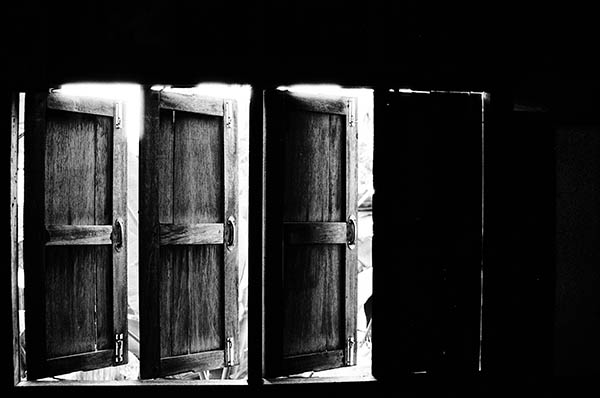
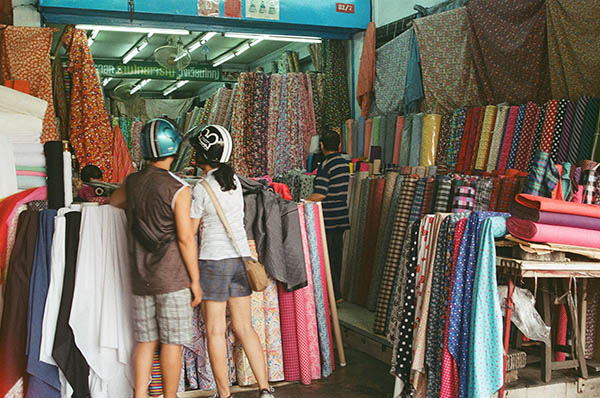
Community
A sense of community is another theme that echoes throughout all our interviews, whether that community is based offline or online, or a bit of both. Kavitha, who ran Wonder Women of Bangkok Meetup group and its Facebook group for the past year before passing the baton, cites community as a prime reason for joining and later leading the group.
“As an Asian expat, it was hard for me to meet female friends. I feel like there are very few single Asian expat women around and Wonder Women really helped me to secure a safe circle for myself here. The group is about women seeking solace in each other’s company. It’s a safe zone where women can shamelessly be themselves, regardless of their differences.”
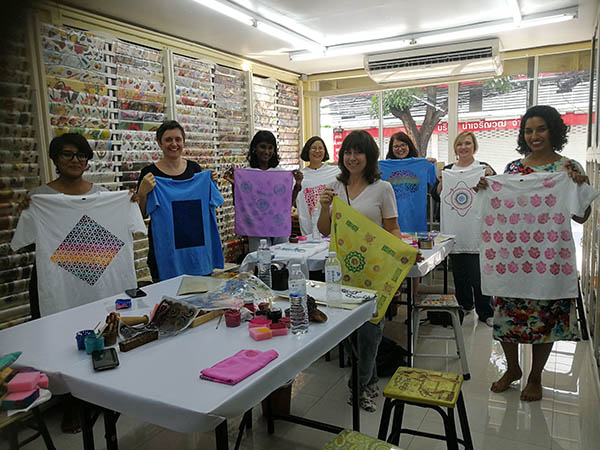
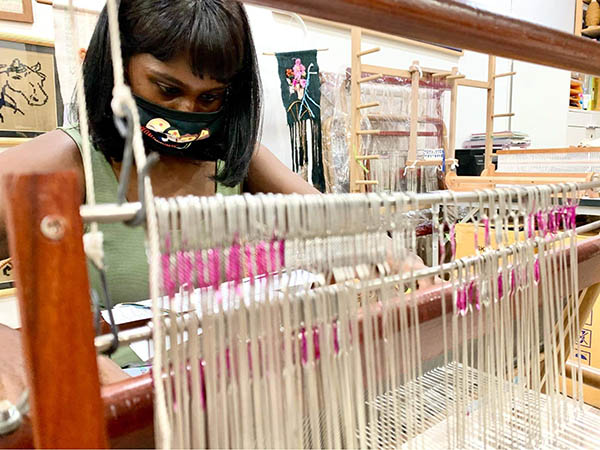
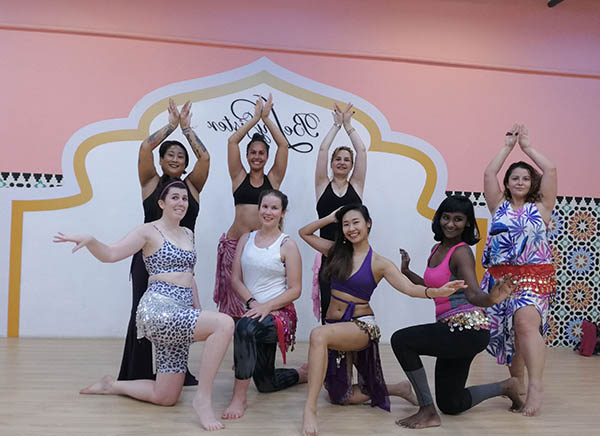
The group welcomes both Thai and expat members, though the meetups mainly attract female expats new to the city, looking to make friends and connections.
“Women come and once they find people they vibe with, they meet up on their own,” Kavitha said. “That’s my target – I want you to forge your own friendship group.”
Past meetup events have included ladies night drinks, bottomless brunches, art and craft workshops, roller derby, comedy nights, belly dance classes, and much more, which appeal to a wide range of women with different interests.
“The group is about women seeking solace in each other’s company. It’s a safe zone where women can shamelessly be themselves, regardless of their differences.”
The meetups are also an opportunity for women to support female-owned businesses, and Kavitha notes that she specifically seeks out women-led enterprises when she’s organizing events:
“As much as I’m trying to bring people together, I’m also trying to support female-owned businesses, which we can really contribute something to. That is the other really rewarding part of Wonder Women – being able to support women-led, especially Thai women-led, creative businesses during this time.”
Business opportunities
The pandemic has disproportionately affected women’s jobs, with women accounting for 39% of global unemployment, yet 54% of COVID-related job losses. Factors include the burden of unpaid care, overrepresentation in sectors hit hardest by Covid-19 (manufacturing, care services, travel), disproportionate impact on female entrepreneurship (female-owned businesses statistically employ more female labor) and existing, pre-COVID gender inequalities.
Bangkok Boss Babes was set up this year to support the city’s female entrepreneurs during this difficult time. In the Facebook group, members can grow their social media followings and engagement rates through reciprocal Facebook and Instagram “threads.”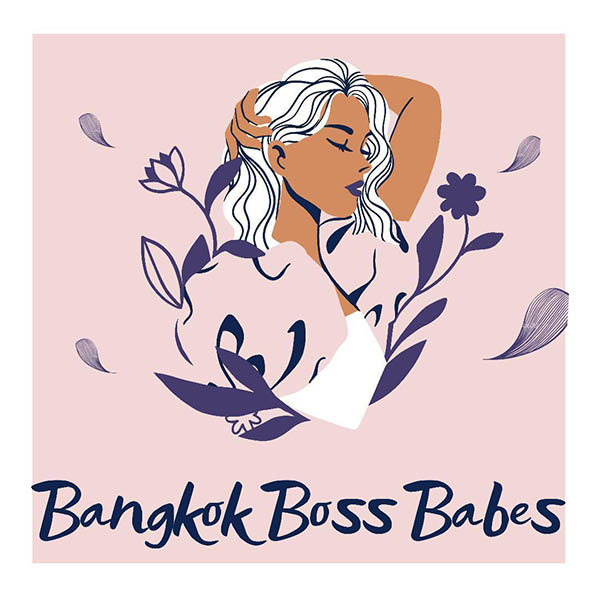
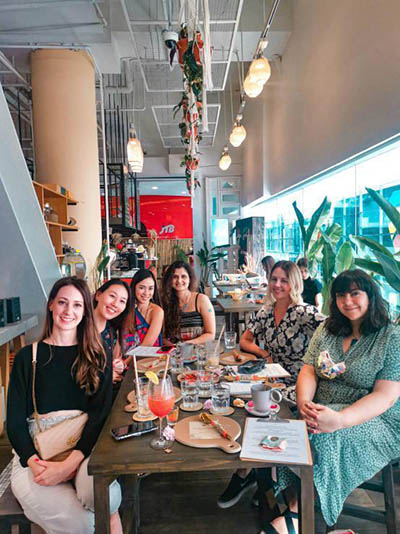
The idea came from entrepreneur Jojo, and the origins of the group lie in her 2020 lockdown goals set to grow her business accounts on social media.
“Some of my friends were like, ‘Hey, why is your Instagram growing so quickly? Can you teach me what you’re doing?’”
These requests turned into a Line group of women who wanted to support each other and enhance each other’s algorithms on Instagram by liking, commenting and following each other. However, as the group grew, some members found it increasingly hard to keep up all of the time and tensions became evident.
Women account for 39% of global unemployment, yet 54% of Covid-related job losses.
As a solution, Bangkok Boss Babes was formed with a team of moderators – Sheila, Tay, G, Dev, and Nat – with different backgrounds, who could keep the group organized.
“You can choose which engagement thread you want to do and it’s at certain times of day. So, if you have time to do it, great, drop your link; if you don’t have time to do it, you can skip until whenever you’re free.”
Beyond the engagement threads, other benefits of being part of the group started to come to light, as the women learned about each other’s businesses, bought each other’s products, and recommended other members’ products and services within their social circles.
“We do have a kind of solidarity, we do want each other to succeed.”
Collaborative giveaways were organized that gave members the opportunity to work on cross-promotional marketing campaigns. Tay and G started the weekly “Babe on Spotlight” posts to highlight a different member each week. Jojo started to share tutorial videos on social media and marketing. Nat and Dev make sure that the threads are different, so that members get different engagement for their posts on Facebook or Instagram (and this may be expanding to more platforms in the near future). Naturally, friendships blossomed.
Bangkok Boss Babes held their first offline networking event in March, led by Sheila, where many of the members met in person for the first time, while everyone was invited to participate in a live reciprocation thread to better understand how the social media engagements work.
Planned future events include talks where members can pitch their businesses in a showcase. Later, the group plans to expand to Southeast Asia, as many of its members ship products overseas.
“We do have a king of solidarity; we do want each other to succeed,” Jojo said. “Having that support group is important; it helps motivate you to do better, to learn more. We’re stronger as a team, a tribe, a group.”
Continue reading the rest of this article at The F Word.
Amy Poulton identifies as a bookish backpacker and British bookpacker. Hailing from Birmingham, her granddad has suggested that the family is related to the Peaky Blinders. Amy has written for Lonely Planet, Fodor’s, Lifestyle Asia, Coconuts Media, Bangkok 101, as well as other leading travel and lifestyle media. She has counted Hong Kong, Italy, Mexico and now Thailand as home. Read more of her work on her portfolio site, Page Traveller book and travel blog, Facebook and Instagram at @amy_pagetraveller.




